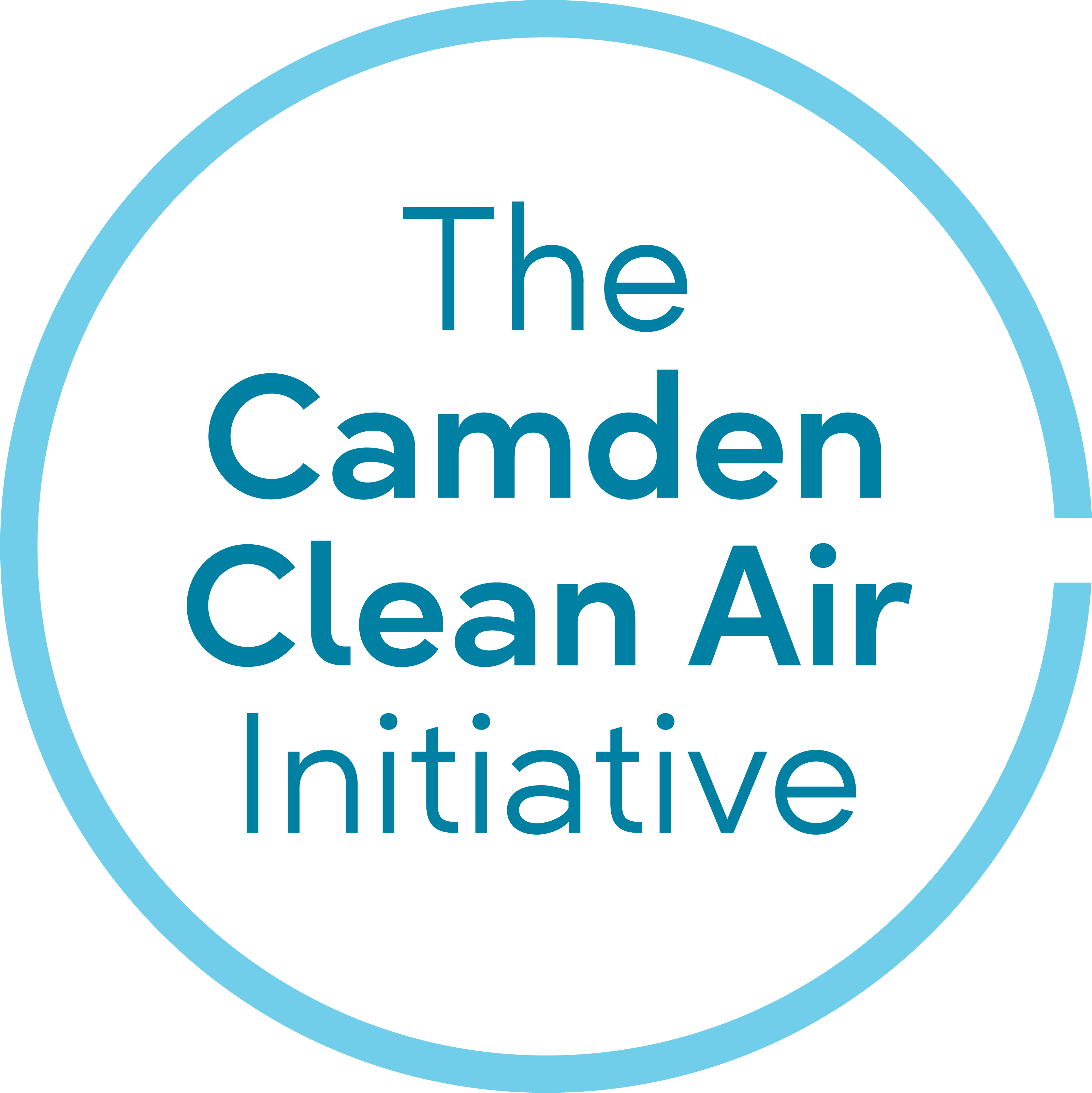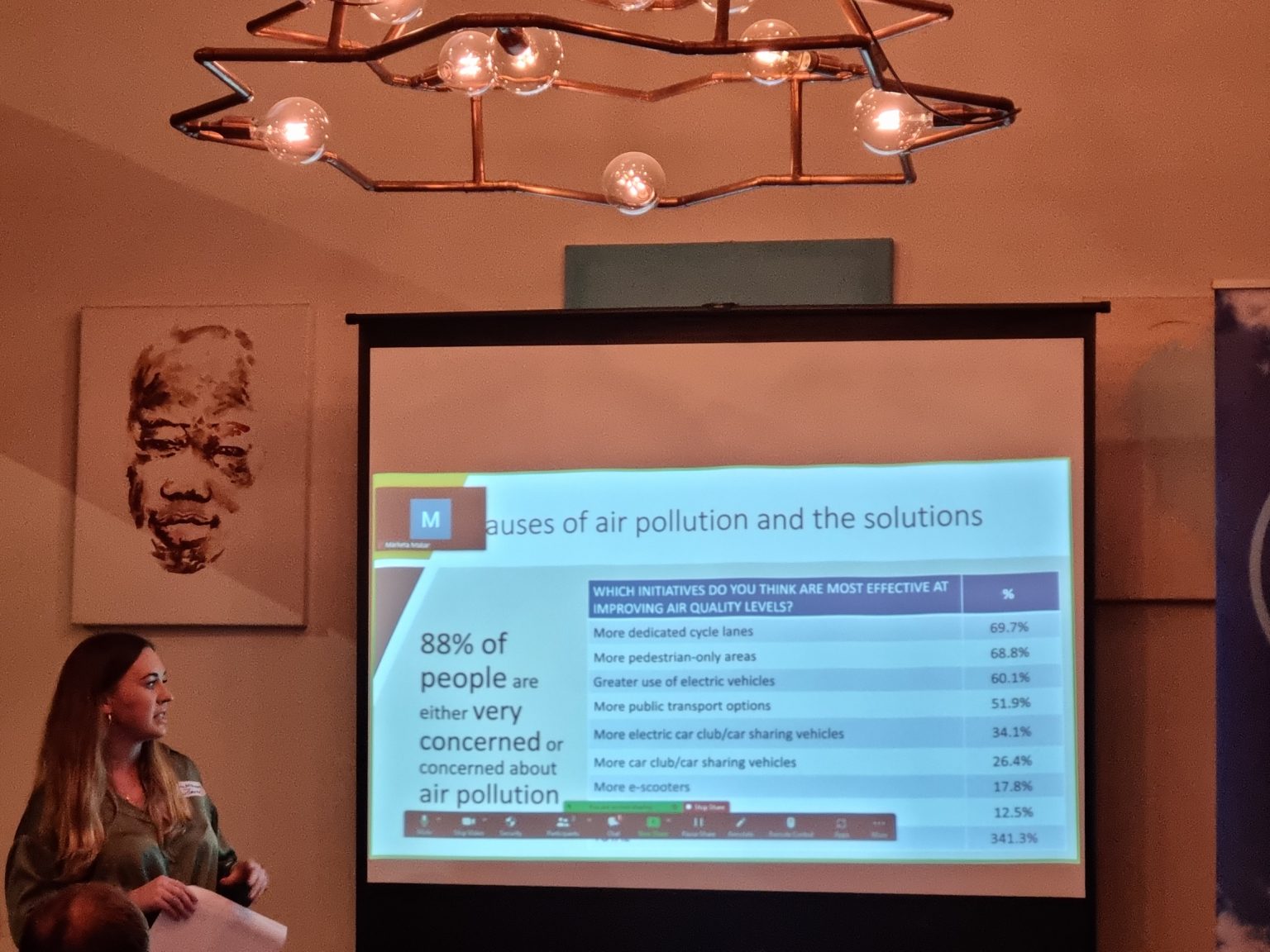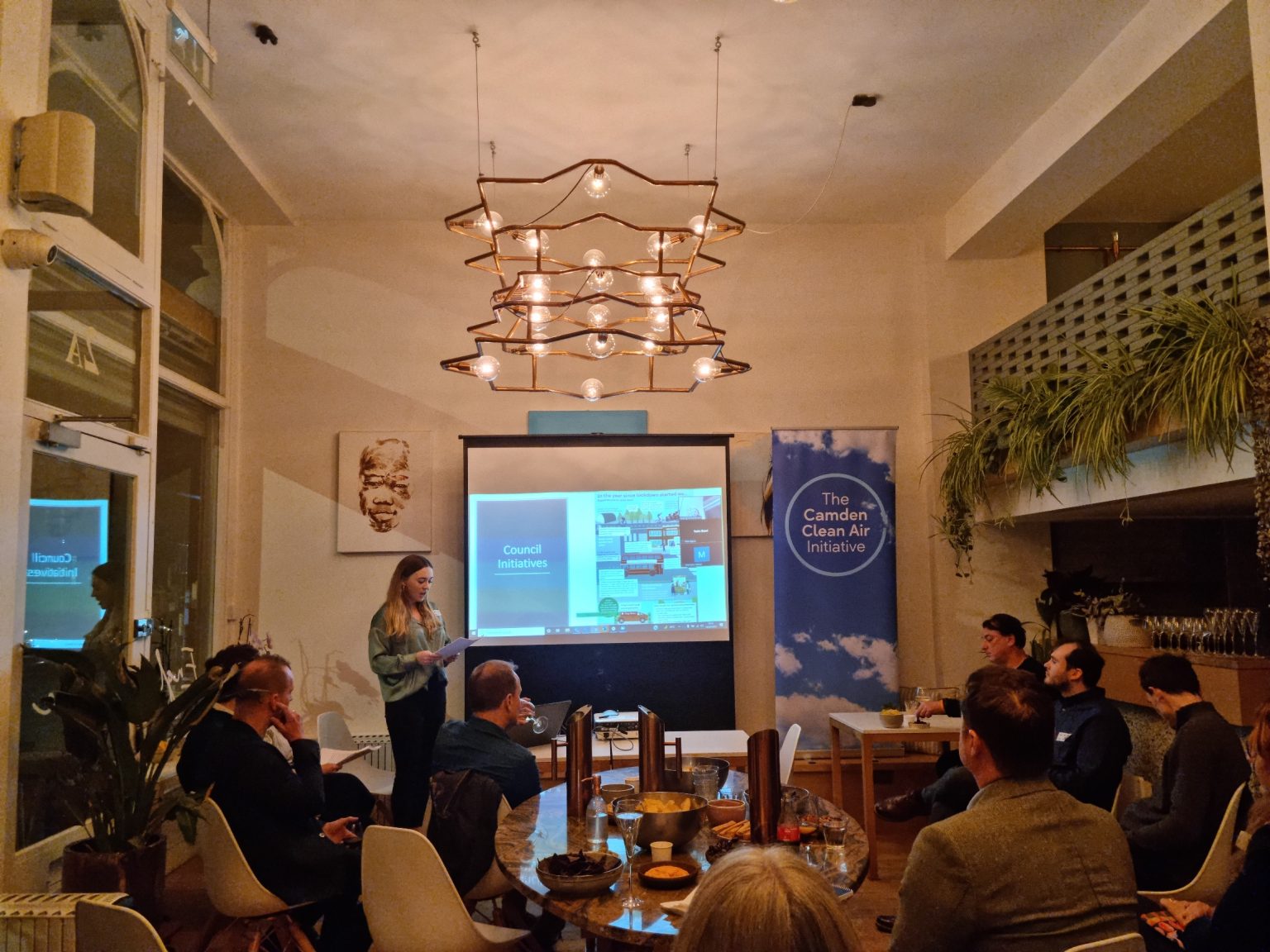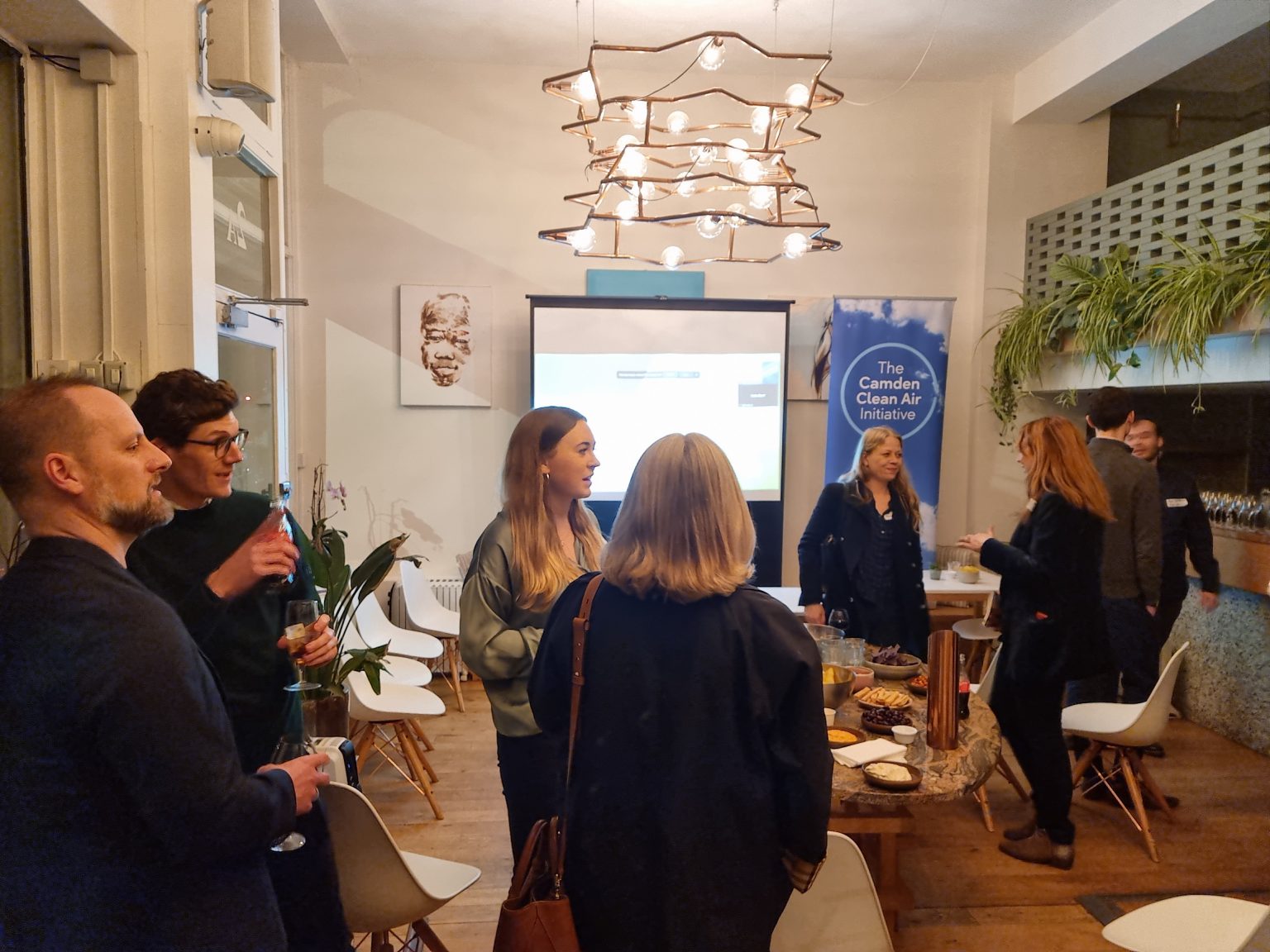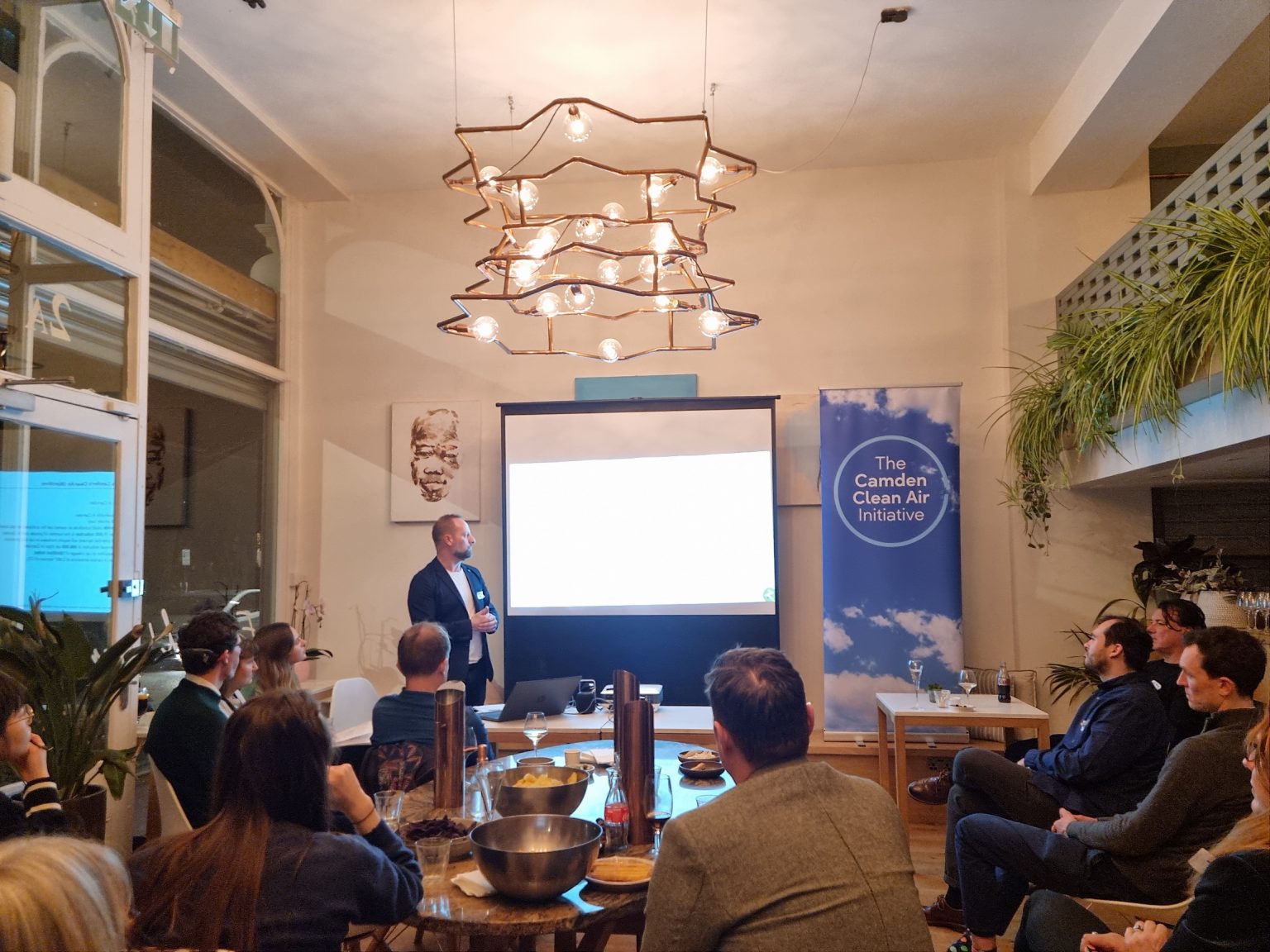
Introduction
This report sets out the results of a community survey that Camden Clean Air created in order to gain a better understanding of how to enable the shift away from privately owned cars in Camden. We wanted to understand how we could achieve behaviour change so we ran a survey and community workshop to listen to the voices of those living and working in Camden.
Summary
Key findings from the survey identified:
- 88% of people are either very concerned or concerned about air pollution.
- Of those that use a car that don’t own one they would use the following modes:
- Nearly 60% would hire a taxi
- Nearly 45% would use a car club
- Just over 40% would get a friend with a car to help
- Just over 30% would rent a car
The survey also identified that over 70% of non-car owners still require a vehicle at certain points in time such as moving heavy items including shopping, or transporting children, elderly, and for those times when there is no public transport These present a significant challenge to overcome if we are going to reduce vehicle use in Camden. We also explored how these journeys could be made as green as possible and analysed the role that car sharing could play. The research found that 42% of residents said that if they had access to a shared one-way rental electric car, this would encourage them to get rid of their private car.
As there are approximately 40,000 car owners in Camden, if 40% of these sold their cars this could lead to 16,000 cars being taken off the road.
Camden Clean Air Vision
The philosophy behind The Camden Clean Air Initiative is that we all have the right to clean air. We aim to transform Camden into a haven for walking, cycling, and e-mobility by working with the council, the community, and businesses, to introduce borough-wide initiatives and policy change. We set out a 10-step plan to do this, and our fifth action has always been to ‘Reduce private ownership of cars and increase electrification’ in Camden.
We believe that the answer to reducing vehicle emissions is a holistic approach that combines active travel, increased pedestrian-only areas, and infrastructure and policy to support e-mobility. This is reflected in many of our projects and events. Our Parklets project, for example, was created to make roads less car-friendly and put priority back into the public realm. We also run The Camden Clean Air Cycle Ride, which was created to encourage cycling, build confidence, and bring awareness to the cycle lanes in Camden. Increasing active travel will always be at the forefront of the work we do.
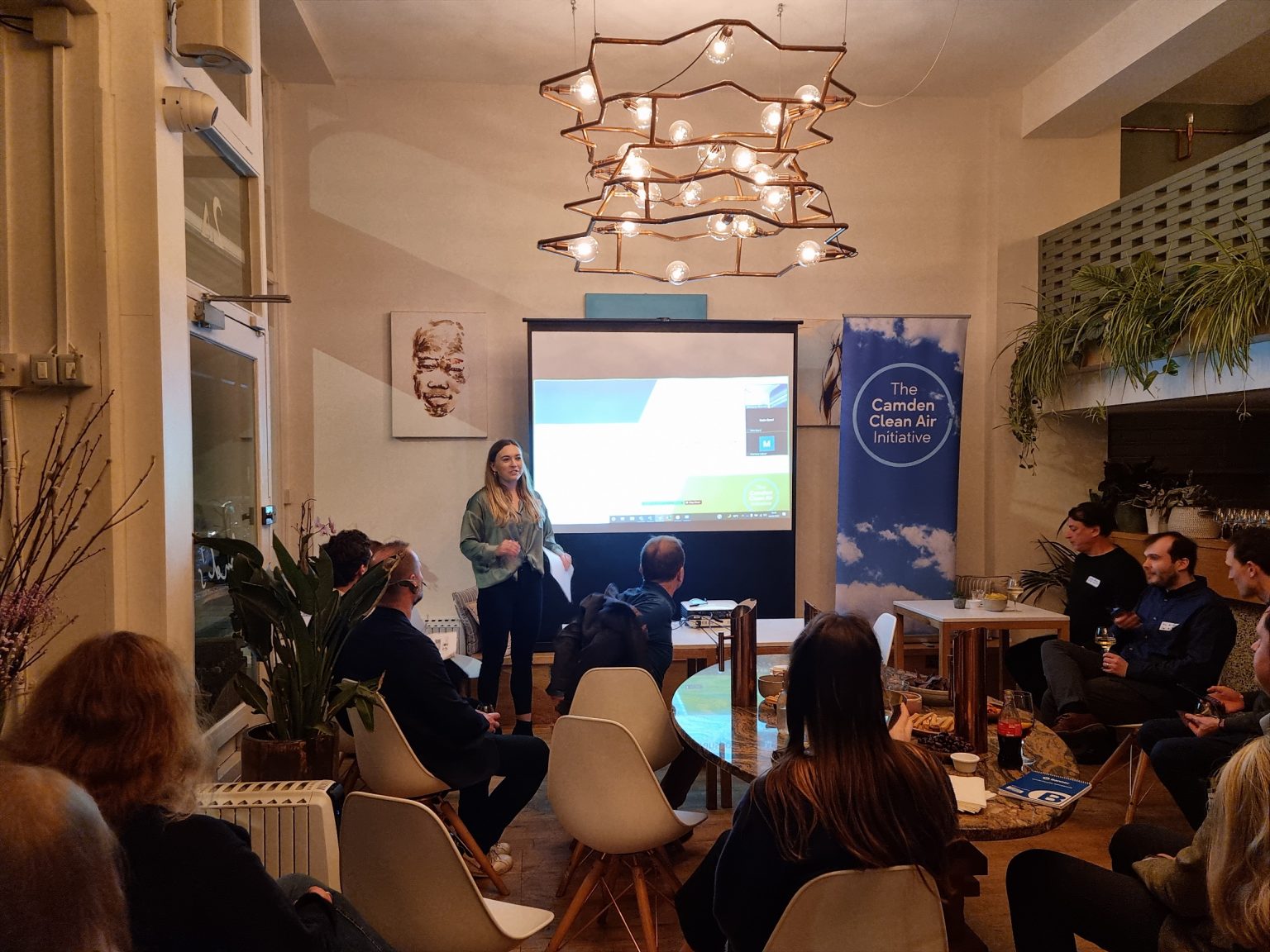

Other Initiatives in Camden
It is important to highlight the brilliant work that Camden Council has been doing over the last few years to reduce vehicle emissions. The council has added 114 new cycle hangars since April 2020, trebled the length of segregated cycle network since 2019, introduced 24 Healthy School Streets, created 20 Streateries covering nearly 80 businesses, and created over 3,500 m2 of new and improved public realm for pedestrians. We want to celebrate the improvements being made by the council in this area.
We can see from the council initiatives plus projects by action groups like us that there has been a lot of work done to increase cycling and walking. For example, the council’s overarching target is to have 93% of all journeys being made by walking, cycling, and using public transport by 2041. We do know, however, that there are still approximately 40,000 car owners in Camden, and vehicle emissions account for 49% of NO2 pollution in Camden. We wanted to explore why, despite a lot of great work being achieved, a lot more needs to happen to reduce these numbers. We wanted to understand why residents still own cars and what we could do to encourage the shift.
Survey Results
To understand why vehicle emissions were high despite the uptake we have seen in cycling and walking, we decided to focus on alternative solutions such as car-sharing that we at Camden Clean Air hadn’t previously explored. We created a survey to research and explore these options. The ultimate goal is to reduce vehicle emissions and we wanted to hear from the community about their needs and thoughts on these topics.
Demographics
209 people completed our survey, and we had a good spread of people take part. We shared the link on all our channels and received the help and support of various community groups, businesses, and schools, who distributed the survey which enabled us to reach a large area. We had participants from 16 out of 18 wards, which highlights this.
67.5% of participants live in Camden and 51.7% work in Camden. 42.6% were male, 56.9% female, and 0.5% non-binary / third gender. We also had an even spread of ages with people in each age category from 18 – 70+. Out of those who didn’t live in Camden, 94.7% live in greater London so the vast majority are still travelling across London to get to work in Camden.
Air pollution
Our survey found 88% of people are either very concerned or concerned about air pollution. Participants were then asked what initiatives they think are most effective at improving air pollution levels in the London Borough of Camden.
| WHICH INITIATIVES DO YOU THINK ARE MOST EFFECTIVE AT IMPROVING AIR QUALITY LEVELS? | % |
|---|---|
| More dedicated cycle lanes | 69.7% |
| More pedestrian-only areas | 68.8% |
| Greater use of electric vehicles | 60.1% |
| More public transport options | 51.9% |
| More electric car club/car sharing vehicles | 34.1% |
| More car club/car sharing vehicles | 26.4% |
| More e-scooters | 17.8% |
| Other | 12.5% |
This supports our message that we want to see more walking, cycling, and use of public transport, then next in the hierarchy is shared transport and e-mobility. We recognise the need for a holistic approach to reducing vehicle emissions and it was good to see this reflected in the community responses.
Car owners vs non-car owners
We then asked all participants ‘Do you own a car?’ and received the following responses:
| DO YOU OWN A CAR? | % |
|---|---|
| Yes | 43.5% |
| No | 56.5% |
We followed this up by asking what discouraged them from purchasing an EV and received the following results:
| DO ANY OF THE FOLLOWING FACTORS DISSUADE YOU FROM PURCHASING AN ELECTRIC CAR IN FUTURE? | % |
|---|---|
| Lack of available charging points | 54.9% |
| Price of purchase | 51.6% |
| Limited driving distance | 45.1% |
| Price of maintenance | 13.2% |
| None of the above | 18.7% |
This is useful to learn as it demonstrates the challenges we need to overcome if we want to see more people choosing EVs. We are also aware that EVs don’t solve everything (tyre wear, congestion, parking) and we still want to reduce the number of vehicles on the road.
Non-car-owners
Now looking at the non-car-owners, we found that 70.3% find times when they still need a car such as moving heavy items, transporting children or the elderly, or when there is no public transport. In these circumstances, they use the following modes of transport:
| WHAT TRANSPORT DO YOU USE IN THESE CIRCUMSTANCES? | % |
|---|---|
| Hire a taxi / Uber | 59.0% |
| Use a car club vehicle | 43.4% |
| Get a friend with a car to help | 41.0% |
| Rent a hire car | 32.5% |
| None of the above | 6.0% |
These results suggest we are never going to fully get rid of vehicles as 70% of non-car owners still require a vehicle at certain points in time. What we want to do is explore how we can make these journeys as green as possible.
Car-sharing
As mentioned, a solution we wanted to explore is whether increased access to car-sharing would lead to a reduction in private car-ownership. We asked:
| IF YOU HAD ACCESS TO A SHARED RENTAL CAR, WOULD THIS ENCOURAGE YOU TO GET RID OF YOUR PRIVATE CAR? | % |
|---|---|
| Yes | 30.8% |
| No | 69.2% |
Followed by:
| IF YOU HAD ACCESS TO A SHARED RENTAL ELECTRIC CAR, WOULD THIS ENCOURAGE YOU TO GET RID OF YOUR PRIVATE CAR? | % |
|---|---|
| Yes | 39.6% |
| No | 60.4% |
Knowing that there are approximately 40,000 car owners in Camden, if 40% of these sold their cars this could lead to 16,000 cars being taken off the road. This is a significant number, and it is also really interesting to note how that number jumped up when given the option of a shared electric car.
One-way electric car sharing
We wanted to explore this further and look at what would need to change or become available to trigger this shift. In Camden currently, companies such as Zipcar are operating but with only a Roundtrip service rather than a one-way service and we wanted to identify whether including a car club one-way service would make a difference in reducing the number of privately owned vehicles. We asked the participants whether they would support the introduction of a one-way electric car-sharing service in the London Borough of Camden. 67.9% answered that they would support this.
| WOULD YOU SUPPORT THE INTRODUCTION OF A ONE-WAY ELECTRIC CAR SHARING SERVICE IN THE LONDON BOROUGH OF CAMDEN? | % |
|---|---|
| Yes | 67.9% |
| No | 9.6% |
| Don't know | 22.5% |
Supporting is one thing, so we asked all car-owners ‘if a one-way electric car-sharing service was available in the London Borough of Camden, would you be more likely or less likely to sell your private car?’. Out of the car owners, 42.9% answered they would be more likely to sell their car.
| IF YOU ARE A CAR OWNER AND A ONE-WAY ELECTRIC CAR-SHARING SERVICE WAS AVAILABLE IN THE LONDON BOROUGH OF CAMDEN, WOULD YOU BE MORE LIKELY OR LESS LIKELY TO SELL YOUR PRIVATE CAR? | % |
|---|---|
| More likely | 42.9% |
| Less likely | 7.7% |
| No impact | 49.5% |
To summarise, the list below shows how the different variations of car-sharing increased the percentage of people that would consider selling their car:
- More car sharing: 30.8%
- More electric car sharing: 39.6%
- More one-way electric car sharing: 42.9%
Conclusion
We want to reduce car ownership in Camden and we set out to gather views from the community to establish the best ways to do this. We knew that great work is being done around cycling, walking, and pedestrianised zones, all of which make roads less car-friendly and discourage driving. We knew we still had a long way to go though so wanted to explore other options such as car-sharing and how this would fit into the overall strategy.
The results have supported that car-sharing, particularly the inclusion of one-way car sharing could lower private ownership of cars and would be supported by the community. We also learned about the importance of alternative solutions such as e-bikes and scooters, more cycle lanes, better public transport, and EV charging infrastructure. We therefore consider that the approach needed must be holistic by integrating all of these solutions, and most importantly it must be fully supported by our community, the businesses, and our local council.
From the community, we ask that you make the behavioural change needed to reduce air pollution and that you consider these other travel solutions, such as car-clubs, as alternatives to owning a car. For businesses in this space, we hope these results will encourage you to further engage with community members and the council. The research has provided you with insight into what the current barriers are and if we want to see the rate of privately owned cars decrease, we need your services to be accessible, affordable, and integrated.
In Camden’s Transport Strategy, it says the council should ‘Only support on-demand and other ‘flexible’ forms of motorised travel, such as on-demand bus services, PHV, taxis, and free-floating car clubs, where there is robust and relevant data to show they can help reduce car ownership and use in Camden’. We hope the research we have provided is robust and relevant enough to show that one-way car clubs would reduce private ownership of cars and that they will now be supported.
Resources
To view the presentation from the community event, which includes the data from the survey and the slides from each speaker you can follow this link. We would also like to share the link to Commonplace that Jacqueline highlighted in her talk that community members can use to have their say. Finally, for car-sharing information specific to Camden, you can follow this link. We really encourage the community to use this link to share their views.








